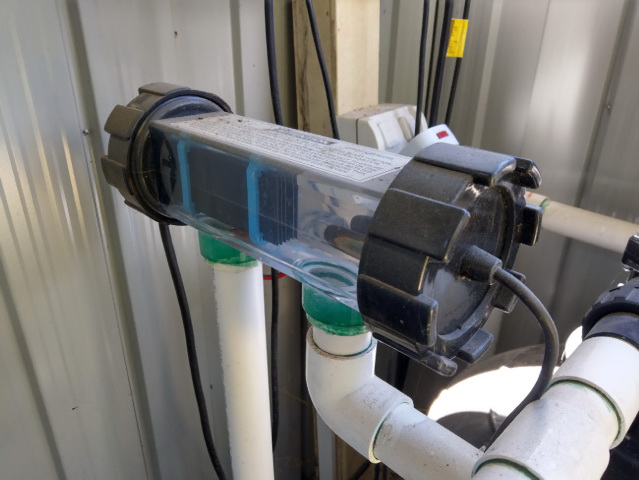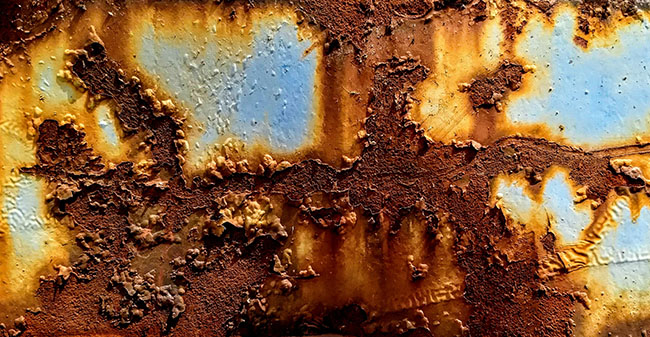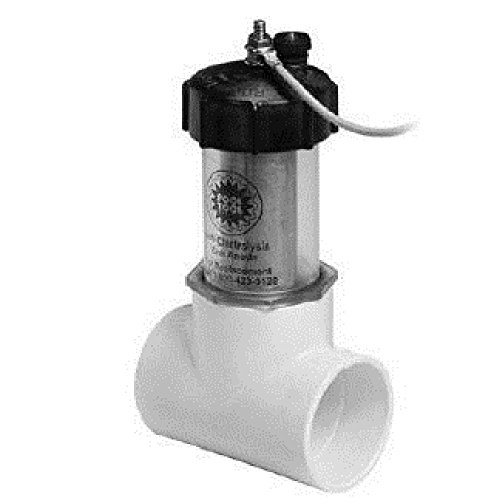Saltwater pools are becoming more and more popular in America. According to Hayward internal data, saltwater pools account for 35% of the estimated 10.4 million US residential pools. But, the question is, are they safe to own?
Saltwater pools face the same dangers as chlorinated pools since they also use chlorine to sanitize the pool. As with all pool types, without the proper water chemistry and maintenance, your pool is vulnerable to bacteria and algae. However, saltwater pools have a higher risk of corrosive damage.
There’s a common misconception that saltwater pools are chlorine-free. It may be because these pools don’t need any added chlorine to keep the pool clean.
Even so, saltwater pools are different. So, it’s important to know what dangers lie when owning one.
Article Contents
Are Saltwater Pools Safe?
As mentioned above, saltwater pools still use chlorine. So, it makes sense they are also safe to swim in. However, how well the saltwater generator works depends on how sanitized your pool is.
A saltwater generator (SWGs or chlorine generator) is responsible for the sanitation in a saltwater pool. It’s responsible for converting the salt (sodium chloride) into free chlorine and sodium ions. This chlorine acts as the sanitizer, binding to chemicals and bacteria. Then the excess chlorine bonds back with the sodium ions to recreate salt.
Where the danger lies here is the quality of sanitation. A reduced amount of chlorine production (or a complete shutdown of the chlorinator cell) leaves room for bacterial buildup. Resulting in an increased risk of infection and disease while swimming. Low temperature is the most common cause for reduced chlorine.
Some saltwater pool owners have found saltwater to be gentler on their lungs than chlorine, though there isn’t much evidence to support it.
Interestingly, a 2003 study carried out on young children who swam regularly in indoor chlorine pools found an increased risk of lung inflammation and developing asthma. However, there isn’t enough evidence to back a saltwater pool as the best alternative to chlorine pools.
Do Saltwater Pools Kill Bacteria?
First, let’s dispel the myth that the salt in the water kills bacteria. Salt is not the primary sanitizer in a saltwater pool, and it does not kill a significant amount of bacteria, nor does it break down organic matter or kill off viruses.
Saltwater pools efficiently kill bacteria due to the generation of chlorine from the saltwater generator (SWG). If setup correctly, this generator creates the perfect amount of chlorine to keep your pool clean and free from bacteria.
Even though your saltwater pool doesn’t need any chlorine added to it, it doesn’t mean that chlorine isn’t the key sanitizer to keeping the pool clean. The job of the saltwater generator is to force sodium and chlorine apart by electrolysis.
How Does It Work?
Salt pools use a salt cell and a process call electrolysis to produce the chlorine. Electrolysis sends electricity through the saltwater to force sodium and chlorine apart. This results in chlorine gas, which dissolves in the water to bond with contaminants. It’s this chlorine that keeps the pool clean.

However, to create chlorine effectively, the water temperature needs to be warm to encourage good conductivity. Without this conductivity, the saltwater generator needs to work harder to break down the salt. Most SWG manufacturers have similar cut-off temperatures (below 50°F/10°C) to preserve the lifespan of the saltwater cell. When the temperature is low, the system reduces the output of chlorine and sometimes even switches off.
SWGs, also known as salt chlorinators, need a certain temperature range to properly work. The average range is between 50°F (10°C) to 60°F (15°C) for optimal sanitation.
Check out our article here to discover the ideal and lowest temperature your salt chlorinator functions at: Lowest Temperatures Salt Water Generator Cells Work At
To make sure your SWG is performing well, test your pool weekly for pH and free chlorine levels. Every month, it’s important to test for pH, alkalinity, stabilizer (cyanuric acid) and make tweaks, where needed. Then every 3 months, clean and test the chlorinator itself for buildup and prevent corrosion.
Learn how to professionally clean your SWG yourself here: How to Clean a Pool Saltwater Cell Like a Pro!
Can You Get Infections from Salt Pools?
As with all kinds of treated pools, it is possible to get infections from salt pools. Bad bacteria in the pool can infect you. This usually happens when using an improperly treated pool with incorrect pH, stabiliser, and chlorine levels.
Diarrhea and swimmer’s ear are the most common infections, according to the CDC. There are multiple ways in which you can get infections (or recreational water illnesses) including swallowing or inhaling water or mist full of germs. Or from chemicals in the water or air.
Germs such as E.Coli or norovirus cause diarrhea. People already suffering from diarrhea spread these bacteria to others when sharing the same pool. At any given time, a person has around 0.14g of feces on their body. These particles mix in the pool and these germs infect other swimmers if swallowed.
Most people have suffered from swimmer’s ear without realizing it’s an infection. Luckily, it’s not infectious (i.e., doesn’t spread from person to person). But, if left untreated, will encourage bacteria growth in the ear which can spread into the inner canal causing worse conditions.
Preventing Infections & Sickness from Saltwater Pools
To reduce the chances of getting sick from your pool, just like a chlorine pool, you need to test your pool water a couple of times a week and ensure that the chlorine, stabilizer and pH levels are correct.
You can use these JNW Direct Pool and Spa Test Strips as part of your maintenance routine.
- Suit pools and spas
- Tests 7 things including chlorine, bromine, pH, cyanuric acid
- Quick & easy to use
Rated 4.5 stars out of 15,476 Amazon reviews, they test for 7 key elements in your pool. These include free chlorine, pH, and cyanuric acid. It also features an app to track your test history too. Despite its rating, some customers have found it to incorrectly measure levels compared to other testing kits.
You can also use a quality drop test kit. Drop test kits are more accurate than strips. They are the preferred choice of pool maintenance pros.
Try this Taylor Saltwater test kit.
- For saltwater pools
- Extremely accurate
- Tests 7 things including salt, pH, chlorine, cyanuric acid
The Dangers of Saltwater Pools
There are two main dangers of saltwater pools:
- The first main danger with saltwater pools is generating the wrong amount of chlorine to effectively sanitize.
- And the second danger, buying the wrong sized system for your pool.
Keep Salt Cells in Good Condition
An old salt chlorinator cell, or a clogged one, may not produce enough chlorine. To keep your pool clear of bacteria, the free chlorine level needs to read 3-5 ppm. Salt cells have a lifespan of 5-7 years, so if the cell is older than that, it may not work efficiently.
Often salt cells clog up, usually from calcium deposits. This is why regular cleaning of the salt cell is key to keeping everything working properly.
Use the Right Size Salt Cell
Choosing the right sized system depends on the size of the pool. And if you’re living in a hot climate, or how busy your pool gets. A system that is too small won’t produce enough chlorine to sanitize the whole pool. And it will require more frequent cleaning. A small system that is too small will also have to work harder and need added chemicals.
The guideline for picking the right size is to install one that is 35-40% bigger than what your pool holds. So, for instance, if your pool is 20,000 gal (91,000 L), choose a saltwater cell that is rated for a 30,000 gal (136,000 L) pool or larger.
Does Your Body or Blood Absorb The Salt?
Your body absorbs salt, explaining the popularity of therapies such as thalassotherapy. Thalassotherapy uses seawater and salty climates to improve the overall well-being of users. A controlled study at a famous thermal spa in Hungary showed improvement in arthritic symptoms.
However, seawater contains much more salt than your typical saltwater pool. Ocean water has a salinity (concentration of salt) of roughly 35,000 ppm. A saltwater pool has between 2,500 to 3,500 ppm. For reference, human tears sit around 6,000 ppm.
Saltwater pools don’t hold enough salt to do harm to your body or blood. Unless you’re purposefully swallowing a massive amount of water. Some people mistakenly compare dietary sodium (and its negatives) with salt in saltwater pools.
Will a Salt Pool Damage Decks and Surrounds?
When you see bleached decks of seaside houses it’s understandable to think a saltwater pool would have the same effect. As you now know, seaspray contains much higher levels of salt than a saltwater pool.
However, damage can still happen to surrounding decking and furniture. Especially those made of metal. When the pool is in use, splashes of water escape and can leave salt deposits if left to dry. Corrosive to metals, salt will also strip paint and varnishes from decking.

You can prevent this damage by hosing down surrounding decking and metallic furniture or ornaments after swimming.
It’s worth noting that many municipalities and states are cracking down on saltwater pools. Too much salt in nature affects plants and trees (by killing microbes in the soil), and harms wildlife too. Many cities have banned new and existing saltwater pools. And others have prohibited draining saltwater pools or backwashing them.
Breaking these rules could result in thousands of dollars in fines or even 30 day imprisonment, depending on the city and state.
Will Saltwater Corrode Lights, Ladders, Etc.?
Unfortunately, many pool lights and ladders have at least one metallic element to them. As we know, saltwater pools have much less concentrated salt than the ocean but they can still be corrosive.
When installing your saltwater pool, it’s best to avoid all types of metals within the pool and its surroundings if possible. Use a vinyl pool liner if your pool will be above ground. Additionally, saltwater conducts electricity and does increase the corrosion of metals.
To help prevent corrosion in your saltwater pool you can introduce a sacrificial zinc anode like the Pool Tool 104-D. You can get it here:
- Protects heaters & pool equipment from galvanic corrosion
- Simple to install
- Helps prevent metal corrosion in saltwater pools
These anodes attract the corrosive capabilities of saltwater to protect other metallic features of the pool equipment (ladders and lights). And it has 4.6 stars out of 299 Amazon reviews. However, some customers found that their units had hairline cracks in it causing leakage straight away.
Is a Saltwater Pool Suitable For Me?
Pros:
- Saved money and time
- More enjoyable swim
- Needs less byproducts to stabilize chlorine
Your pool budget will be much cheaper in the short term because you don’t need to worry about continuously buying chlorine like you would with a typical pool. With a saltwater pool, you’ll only need to top it up with salt if the salinity level drops outside its optimal range (3,200 ppm).
Many saltwater pool owners report a nicer swim because salt tends to be less irritable to the eyes and skin. And it has a more pleasant smell than chlorine.
Cons:
- Upfront cost is expensive
- Your area may not permit it
- Corrosion and its potential damage
- Replacement salt cells are expensive
The upfront cost of a saltwater pool is the biggest con. Depending on what size the SWG needs to be, you should expect to pay anywhere between $500 to $2,000 for one. Generally, over the long term, a saltwater pool will be the same or more than a chlorine pool.
This is because of the upfront costs and also because the salt cell has a limited lifespan and needs to be replaced every 5 years give or take a couple of years. And the cost to do this is in the hundreds of dollars.
Before considering a pool, research your municipality’s codes to see if there are any restrictions or bans with owning a saltwater pool.
Although the corrosive effect of saltwater is much less than seawater, you’ll find that equipment will still corrode faster than a regular chlorinated pool.
Final Thoughts
Seeing as saltwater pools are still chlorine pools, they are just as safe as the typical chlorine pool. A poorly maintained pool is the most common health safety issue across all pools, not just saltwater ones. However, with saltwater pools, it is more susceptible to corrosion but people do report them to be more enjoyable than chlorine pools.
As long as you keep your pool well maintained and take protective measures, where needed, there is no additional danger to owning a saltwater pool.
Related Reading: 13 Reasons Why Saltwater Generator IS Not Working or Generating Chlorine




